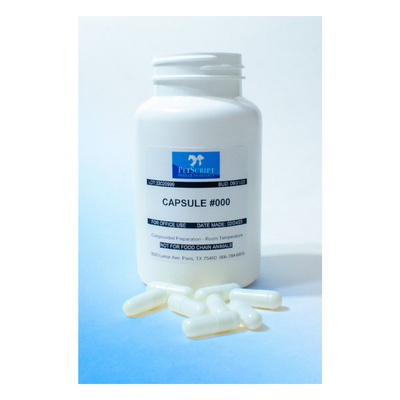Top 7 Benefits to Use fenbendazole capsules for Dogs and Cats
Wiki Article
Understanding the Benefits and Uses of Fenbendazole in Veterinary Medication
Fenbendazole has actually developed itself as a key anthelmintic in veterinary medicine. Its capacity to target numerous parasitical infections makes it an important device for vets. The drug's system disrupts essential mobile procedures in parasites, leading to efficient treatment end results. Its safety and security profile differs in between species, necessitating careful consideration in its usage (fenbendazole 222). Understanding these dynamics can lose light on fenbendazole's wider effects in vet treatment and recurring research study into its possible beyond standard applicationsDevice of Action of Fenbendazole

Usual Parasitic Infections Dealt With With Fenbendazole
A range of parasitic infections are effectively treated with fenbendazole, making it a versatile option in vet medicine. This anthelmintic representative is especially effective against nematodes, including roundworms and hookworms, which typically impact canines and cats. It is additionally used for the therapy of cestodes, such as tapeworms, giving a broad range of action versus both types of intestinal parasites. Furthermore, fenbendazole is beneficial in handling infections brought on by protozoa, specifically Giardia, which can cause intestinal distress in animals. Its efficiency encompasses dealing with specific lungworms in canines and felines, dealing with respiratory wellness problems linked to these bloodsuckers. On the whole, fenbendazole's ability to target numerous parasitic types makes it a valuable tool in veterinary method, guaranteeing the health and wellness of pets affected by these common infections.Safety and security and Effectiveness in Various Animal Types
The safety and efficacy of fenbendazole vary amongst different animal types, highlighting the significance of species-specific considerations in veterinary medication. In canines, fenbendazole is generally well-tolerated and reliable against a series of stomach parasites, including roundworms and hookworms. For felines, however, its usage is much less typical and might require cautious application because of prospective damaging responses.In animals, such as cattle and lamb, fenbendazole demonstrates effectiveness against different endoparasites, adding to improved wellness and performance. The pharmacokinetics and possible side results can differ considerably between varieties, demanding cautious analysis by veterinarians.
Equines also respond positively to fenbendazole, particularly for treating strongyles and ascarids, though dosage and management routes should be tailored to their unique physiology. Understanding these distinctions is essential for optimizing therapy outcomes and making certain animal well-being throughout diverse species.
Management and Dose Guidelines
Proper management and dosage standards are essential for making best use of the healing effects of fenbendazole while lessening potential adverse effects. The dosage usually differs depending upon the types being treated, the details problem, and the formulation of fenbendazole made use of. 222 mg. For pet dogs and pet cats, a common dosage is 50 mg/kg body weight, provided daily for three consecutive days, yet vets may adjust this based upon individual health and wellness assessmentsIt is essential to administer fenbendazole with food to enhance absorption and decrease stomach distress. The medicine is available 222 mg in numerous kinds, including granules and paste, permitting adaptable administration options. Checking the pet's action throughout and after therapy is a good idea to confirm efficiency and safety and security. Furthermore, vet assistance is essential to establish the ideal period of treatment based on the type of parasitical infection being dealt with, guaranteeing optimal outcomes for the animal's health.
Future Viewpoints and Research Study on Fenbendazole
Research on fenbendazole continues to progress, concentrating on its possible applications past standard antiparasitic uses. Recent research studies have actually explored its efficiency in dealing with various types of cancer, especially in vet oncology. Preliminary data suggest that fenbendazole may hinder the growth of tumor cells and enhance the impacts of other chemotherapeutic representatives.Scientists are examining its duty in managing gastrointestinal disorders in animals, highlighting its anti-inflammatory residential or commercial properties. The versatility of fenbendazole for different varieties raises concerns about its safety profiles and optimal dosing routines in diverse populaces.
As interest expands, there is a demand for complete scientific trials to develop evidence-based standards for these unique applications. Future research might additionally examine the devices behind fenbendazole's results, possibly leading the means for innovative healing strategies in vet medication. The recurring expedition of fenbendazole could substantially enhance therapy alternatives for different veterinary problems.

Regularly Asked Inquiries
Is Fenbendazole Safe for Pregnant Animals?
The security of fenbendazole for expecting animals remains unsure. While some researches recommend marginal danger, vets normally advise care and often discourage its usage while pregnant unless the benefits plainly outweigh prospective threats.Can Fenbendazole Be Made Use Of in Livestock?
Fenbendazole is frequently used in animals to deal with different parasitical infections. fenbendazole capsules. Its effectiveness versus gastrointestinal worms makes it an important anthelmintic, adding to enhanced wellness and productivity in animals raised for food and fiberWhat Are the Negative Effects of Fenbendazole?

The side effects of fenbendazole might consist of intestinal disturbances, sleepiness, and allergic reactions. In unusual situations, much more serious responses could occur, demanding mindful surveillance and consultation with a vet throughout treatment.
Exactly How Does Fenbendazole Compare to Various Other Dewormers?
Fenbendazole offers broad-spectrum efficiency versus different bloodsuckers, often comparing positively to various other dewormers. Its one-of-a-kind system targets various life stages, making it reliable, while normally providing a beneficial security account contrasted to choices available on the market.Can Fenbendazole Be Utilized for Dealing With Cancer in Family Pets?
The possibility of fenbendazole in dealing with cancer cells in pets has actually gathered rate of interest. Initial research studies recommend it may inhibit cancer cells cell development, but further study is essential to validate its efficacy and safety and security in veterinary oncology.Report this wiki page